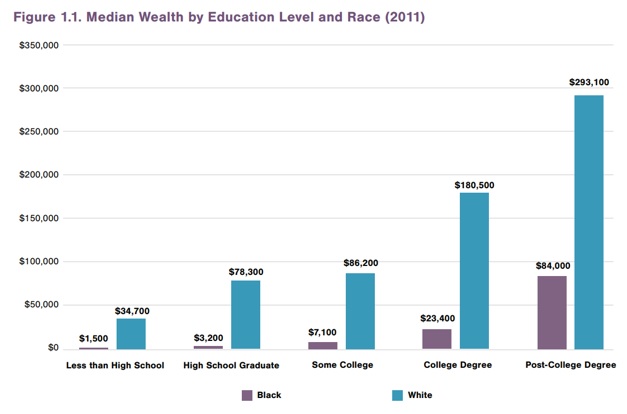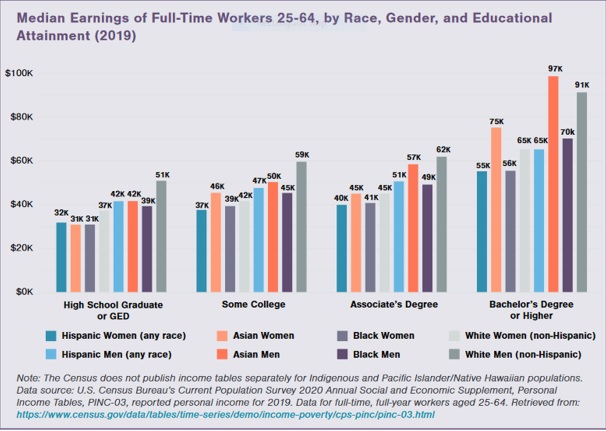 At FCAN, we believe that college — which includes any type of high-quality education or training after high school — is for everyone. Floridians agree: in a 2020 FCAN survey, 78% of Floridians said that everyone needs an education beyond high school. Having a high-quality education beyond high school boosts lifelong earnings — putting more money into the pockets of Floridians and the state’s economy, and ultimately making Florida Talent Strong.
At FCAN, we believe that college — which includes any type of high-quality education or training after high school — is for everyone. Floridians agree: in a 2020 FCAN survey, 78% of Floridians said that everyone needs an education beyond high school. Having a high-quality education beyond high school boosts lifelong earnings — putting more money into the pockets of Floridians and the state’s economy, and ultimately making Florida Talent Strong.
A May report released by the Postsecondary Value Commission, an initiative supported by the Bill & Melinda Gates Foundation, proposes a new approach to measuring postsecondary value that aligns with FCAN’s mission to boost the attainment of Floridians. The Commission, formed in 2019, is made up of national leaders and experts in education, policy, and advocacy. Their report and action agenda do three things: define the value of education after high school, offer a new framework to understand how to measure this value, and outline policies leaders and decision-makers should adopt to “address systemic barriers that prevent Black, Latinx, Indigenous, and AAPI students, students from low-income backgrounds, and women from reaping equitable returns from postsecondary education and achieving economic and social mobility.”
Ultimately, the report seeks to spark an “equitable value movement” that works to dismantle unequal access and completion barriers while boosting economic mobility for all groups.
The 115-page report is grounded in robust research that shows postsecondary education has clear value, particularly in terms of economic outcomes. However, these outcomes are inequitably distributed. For example, the report notes Black families headed by a college degree holder have considerably less wealth than White families headed by a high school dropout. There are multiple factors in earnings disparities — inequitable student loan debt, workforce discrimination, and the underfunding of career pathways that tend to be dominated by women and people of color (such as nursing assistants and home health aides). However, rather than perpetuating these injustices, institutions and programs should interrupt them.
The report defines postsecondary value as something students experience when provided equitable access and support to complete quality, affordable credentials that offer economic mobility and prepare them to advance racial and economic justice in our society. There is also value for society when there is more equitable attainment for low-income students and students of color: the economy would have a more substantial tax base, the workforce would be more prepared, societal injustices would decrease, and the populace would be happier and healthier.
The report’s extensive action agenda offers helpful suggestions for institutions and programs, policymakers, and students and families. Many of these suggestions look familiar, such as equalizing access to postsecondary programs and fields of study, and ensuring programs are affordable. Yet each suggestion offers specific problems to target. For example, students of color are less likely to have access to programs with strong economic returns, such as engineering or computer science.
The report makes it clear that our current postsecondary systems do not offer an equitable return on investment for all students. Students of color and students from low-income backgrounds have lower completion rates and affordability challenges, even in a state like Florida, which has some of the most affordable higher education institutions in the country. Even after they attain a degree or credential, these students, and women, experience unequal economic returns in the workforce. The work of the Postsecondary Value Commission provides several recommendations to address these inequities, including improving data transparency to expose inequities and addressing affordability challenges by increasing needs-based aid. As the Postsecondary Value Commission recommends, FCAN believes that closing these equity gaps should be at the center of our work and inform how we help students achieve economic mobility to make Florida talent strong.
For more information on the work of the Postsecondary Value Commission, visit https://www.postsecondaryvalue.org.
RELATED ARTICLES:


